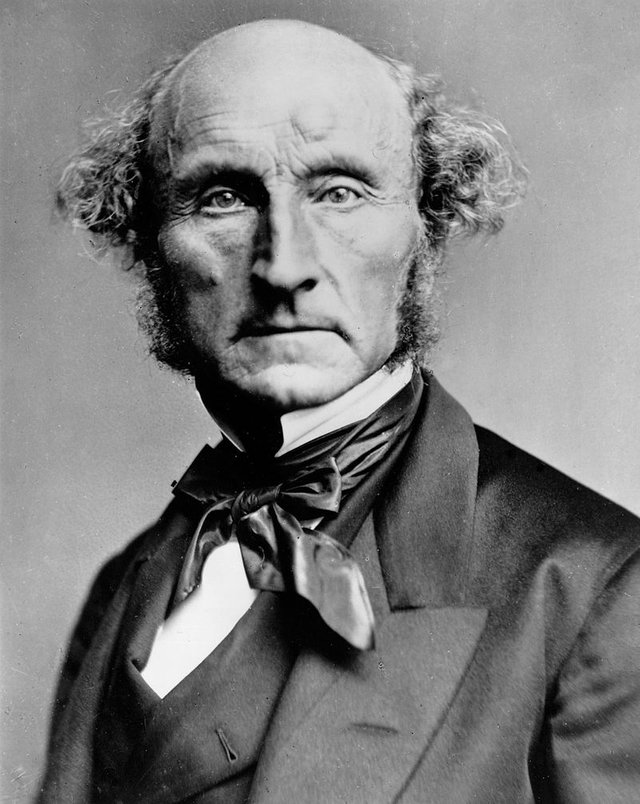Knowledge is Power (20) - The Greatest Happiness Principle
The Greatest Happiness Principle is the center of the Utilitarianism concept, the theory that all our actions depend on their effects. Although forms of utilitarianism have been put forward and debated since ancient times, the modern theory is most often associated with the British philosopher John Stuart Mill (1806- 1873).

By London Stereoscopic Company - Hulton Archive, Public Domain source
Utilitarians believe that the purpose of morality is to make life better by doing more good things than bad things.
The Utilitarianism concept is that all our actions depend on their effects. In other words, we must do what produces best consequences.
Some of the advantages of utilitarianism are:
- It is based on common sense, linking happiness with morality.
- It promotes social harmony, as it requires us to balance our interests with those of others.
- It is practical, allowing psychologists to determine what makes people happy.
- It is flexible, as it doesn't label actions as absolutely right or wrong.
The greatest disadvantage of utilitarianism is that this theory is very demanding. You may have to give up a lot, if not everything, in order to do moral things. According to Utilitarianism, you're morally responsible for the the things you didn't do but could have done to maximize happiness and the things that you could have prevented others from doing that decrease overall happiness. You are also responsible for what you actually do to maximize happiness. For example, you go to movies, but you could do something else to increase the happiness of the world instead. So, you're supposed to choose the act that will maximize happiness, as oppsed to your own happiness.
Another major disadvantage is that people judge differentley what is pleasurable or not, as they have different definitions of happiness.

This post is a part of my series "Knowledge is Power". In case you missed the previous articles, you can read them here:



I do admire Mill's ideas since I am a liberal and was also inspired by utilitarian way of thinking when I was younger. How do you see on criticism based on argument that most people are not utilitarian in our nature and that we have to be convinced ? Something that contradicts the "common sense" aspect
I believe that utilitarianism is based on common sense. I was raised in a strict society with good family upbringing. We called it "the first 7 years of home", when kids learn manners and common sense. I know some people don't have it in their nature, that is sad. That's why they need to be educated. However, utilitarianism can become extreme, there is a very thin line there.
We are SO proud to have you as a member of our
FANTABULOUS @steemitbloggers family!
uvoted and resteemed!
❤ MWAH!!! ❤
interested in joining the Steemit Bloggers Community?
Great food for thought...thank you @starjewel